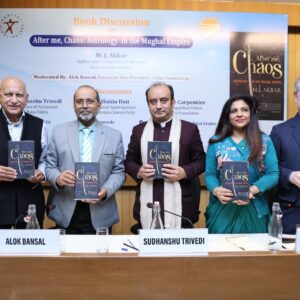
On February 22, 1994, a unanimous resolution was passed by the Indian Parliament. This resolution declared that, “(a) The State of Jammu & Kashmir has been, is and shall be an integral part of India and any attempts to separate it from the rest of the country will be resisted by all necessary means; (b) India has the will and capacity to firmly counter all designs against its unity, sovereignty and territorial integrity; and demands that – (c) Pakistan must vacate the areas of the Indian State of Jammu and Kashmir,which they have occupied through aggression; and resolves that – (d) all attempts to interfere in the internal affairs of India will be met resolutely.”
It is widely argued that much has not been done in keeping with this Resolution of February 1994. Huge territory of the Jammu & Kashmir state of India still remains under the illegal occupation of Pakistan. It is called the Pakistan occupied Jammu & Kashmir (PoJK). Pakistan has divided that PoJK region into two parts –Azad Jammu & Kashmir and Northern Areas in 1970. Azad Jammu and Kashmir is a self-governing State under Pakistan control with a President, Prime Minister and a Legislative Assembly. However the Northern Areas that include Gilgit and Baltistan regions have been made into an autonomous selfgoverning body under Pakistan control called Gilgit-Baltistan. Unlike Azad J&K, Gilgit-Baltistan has a Governor appointed from Islamabad and a Chief Minister.
Under Pakistan control these regions of the PoJK have suffered enormously. Sectarian violence, lack of or no development of civic infrastructure and amenities, denial of fundamental rights, oppression by Islamabad-based political establishment mark the history of the last 6 decades of this region. Democratic voices of dissent get ruthlessly crushed and their political rights cruelly trampled upon. Shias of Gilgit-Baltistan have been facing extreme forms of oppression like brutal killings, arrests and torture. Besides, a systematic campaign to unsettle the demographic order in the Shia-majority region is underway by encouraging large scale migrations from the neighbouring Khyber-Pakhtunkhwa province. What is shocking is that these gross violations of the human rights of millions of people of PoJK go completely unnoticed and unattended.
With a view to highlighting the prevailing situation in this region, which legally and constitutionally belonged to India and also to refresh the public memory about the solemn resolution passed and forgotten about this region by the Indian Parliament in 1994, the India Foundation has started organising conferences on this issue since 2012 AD.
The first PoJK Conference was held in Delhi on 22 February 2012. It was attended by scholars, diplomats, security and strategic studies experts, refugee leaders and political activists from Jammu and Kashmir and rest of India. It had as special attraction two senior leaders from Gilgit-Baltistan region living in exile in US and Canada.The second PoJK Conference was held in Jammu on 22-23 February 2013. Like the first Conference, the second one also attracted wide attention and participation.
This publication presents the summary of the speeches made by various representatives at the first Conference held in 2012 at Delhi. A short report of the second Conference held in 2013 at Jammu is also included.
You can read the document here.



